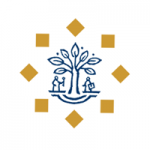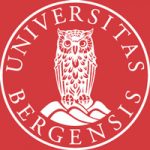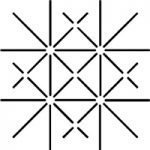项目介绍
The Department of Culture Studies (DCU) at Tilburg University seeks two talented, interdisciplinary postdoctoral scholars for a 3-year position to expand interdisciplinary research into cultural heritage and identity in North Brabant and the surrounding Low Countries region. As part of the Social Sciences and Humanities Sector Plan Cultural Heritage and Identity: Creative Industry, Media, and Popular Culture, DCU is recruiting one fellow working in Environmental Heritage and another in Identity and Popular Culture. The successful applicants will pursue research from a range of approaches, grounded in but not limited to critical heritage studies, environmental humanities, anthropology, social geography, media studies, and phenomenology. We invite applications from candidates who will have successfully defended their PhD (or approved manuscripts) by these positions’ intended start date of September 2025.
The postdoctoral fellows will work in DCU, a collaborative and interdisciplinary intellectual community of researchers studying media, discursive, and artistic practices in digitalizing societies. Collectively, DCU produces scholarship on the broad range of ways digital technologies impact contemporary socio-cultural life and give rise to new understandings of heritage activities, identities, environments, and phenomena in the public sphere. As one of six departments in the Tilburg School of Humanities and Digital Sciences (TSHD), DCU scholars have extensive opportunities to work with colleagues in communications, AI, cognitive science, philosophy, and pedagogical sciences.
Both postdoctoral fellows will contribute to DCU’s research profile in critical heritage and outreach activities rooted in North Brabant, developing an independent project under the guidance and support of colleagues in the interdisciplinary Cultural Heritage and Identity sector plan research group in TSHD. In the tradition of cultural studies, such research will incorporate historical perspectives in the examination of present-day phenomena, working across a wide range of mediums and modes. Such “heritage”-related work may examine community justice, identities and normativities, language and literature, art and society, and much more. The selected applicants will work with DCU’s new endowed Chair in Heritage Participation in the Region, with local heritage organizations and with partners at universities throughout the Netherlands.
Description of position #1: Postdoctoral Fellowship in Environmental Heritage
Home to a diverse range of human and more-than-human perspectives, North Brabant remains an understudied but important region in the Netherlands for better understanding longer histories of culture, heritage, and environment, both within the country and throughout Europe and the globalized world. We are looking for candidates who propose a project that will address the following questions: How has social and ecological history shaped the present-day landscape of North Brabant and the surrounding regions? What human and more-than-human networks are emerging locally which support resilience amidst a climate-imperiled future? And how can research on heritage and environmental justice benefit local and regional communities?
With globalized visual representations of landscape strongly grounded in artistic traditions that emerged in the Low Countries in the sixteenth and seventeenth centuries, North Brabant presents a uniquely salient location for considering the impact of cultural heritage on ways of relating to the environment. We are interested in creative and interdisciplinary methodologies that can unpack how present-day ecologies and ways of inhabiting the landscape were historically constituted, and how this history produces affordances and limitations. Viable projects will further address the emergence of human and more-than-human relations that navigate climate change and biodiversity loss, and a future in which the North Brabant landscape will surely change. These insights may ultimately support a study of environmental (in)justice, and suggest how ecological and social inequalities can be addressed.
While the fellow will receive guidance from Dr. Sean Smith and other members of DCU, they are responsible for the design, planning, and execution of a project that will produce original and groundbreaking research. The expected output of this project will include but is not limited to the publication of peer-reviewed articles in scientific journals, the organization and hosting of a symposium or other research gathering, and presentations at conferences. Collaboration with other colleagues in DCU, in TSHD, and among other Dutch universities is especially encouraged.
Description of position #2: Postdoctoral Fellowship in Identity and Popular Culture
Despite boasting ancient burial grounds dating back tens of thousands of years and cutting-edge semiconductor research happening in Eindhoven, North Brabant remains an understudied but important region for better understanding longer histories of heritage and identity, both within the Netherlands and Europe and throughout the globalized world. The postdoctoral fellow will conduct research on (bodily) identity and popular culture in North Brabant to consider how this region’s diverse array of cultures, languages, industries, and environments enhance scholarly understandings of heritage and its preservation. We are interested in candidates who propose a project that will address the following questions: What social and cultural practices have shaped the fabric of present-day North Brabant and surrounding regions, and how might these heritages be manifested (in both expected and unexpected ways)? How are issues of (bodily) identity – which may relate to gender, sexual orientation, migration background, religion, or ability – expressed and reflected in local artistic practices, and regional popular culture? What frictions are generating new heritage formations, and how are emergent cultural practices reshaping local identities and communities? What is the relationship between heritage and democratic societies in North Brabant? And how can research on heritage and popular culture benefit communities beyond the university?
The postdoctoral fellow will develop an independent research project examining the impact of social and cultural histories on the fabric of communities in North Brabant and surrounding regions. We are especially interested in candidates whose proposed project examines practices of regional identity formation in online and offline spaces, and how these practices respond to, advance, or subvert power. Projects will ideally consider the intersections among gender, sexual orientation, ethnicity, class, religion, and/or ability, and engage the constructedness of these categories. We are interested in how North Brabant is linked to other parts of the country and the world by way of factors such as intra- and international migration or brain drain, and how local and global popular culture is often informed by practices from unexpected identities and places. Such an understanding responds to how art and digitalized practices interact with broader cultural flows, as local communities interpret the global and impact wider processes. These insights may ultimately support a study of community (in)justice, and suggest how social and economic inequalities can be addressed.
While the fellow will receive guidance from Prof. dr. Jenny Slatman and other members of DCU, they are responsible for the design, planning, and execution of a project that will produce original and groundbreaking research. The expected output of this project will include but is not limited to the publication of peer-reviewed articles in scientific journals, the organization and hosting of a symposium or other research gathering, and presenting at conferences. Collaboration with other colleagues in DCU, TSHD, and among other Dutch universities is especially encouraged.
Outreach and education activities
In addition to conducting an independent research project, both postdoctoral fellows will carry out activities in outreach and education.
Outreach
The postdoctoral fellows will collaborate with colleagues in the sector plan Cultural Heritage and Identity research group to help create and maintain a podcast on critical heritage for DCU’s online publication Diggit Magazine. Additionally, the postdoctoral fellow should seek out opportunities to share their research and work in progress regularly with colleagues in higher education and with the broader communities of North Brabant, such as local schools, libraries, heritage organizations, and community centers. Particular emphasis is placed on creative and impactful ways of translating research findings into meaningful work that is accessible to a wide audience, in North Brabant and beyond. Candidates will be asked to describe their vision for how universities can develop relationships with neighboring communities in the coming years.
Education
Each postdoctoral fellow will be responsible for the delivery of one 6 ECTS course within DCU per year at the BA level, which includes the preparation and delivery of lecture materials, assignment marking, and associated administrative duties.
Qualifications
The successful candidate will have:
- A PhD in a discipline relevant to the study of cultural heritage and identity, which will be completed by September 2025
- A research agenda that is commensurate with how DCU understands ‘cultural heritage’
- A publication record suitable for their career stage
- Excellent command of Dutch and English, both written and spoken
- Excellent presentation and communication skills, including the ability to communicate with non-academic audiences
- Awareness of legal and ethical principles in conducting research
- Demonstrated ability to collaborate with colleagues
The ideal candidate will have:
- Experience in teaching at the BA level
- Experience in writing for academic and non-academic audiences
- Experience in (co-)organizing research symposia and/or conferences
Tilburg University offers excellent employment conditions in a pleasant working environment:
- A position as a researcher
- A position based on either 0.8 or 1.0 FTE (32 or 40 hours per week).
- A salary of at least € 3.897,- and a maximum of € 5.331,- gross per month for a full-time employment contract, based on the position of Researcher 4 in the salary scale 10 of the CLA Dutch Universities. Tilburg University uses a neutral remuneration system for classification based on relevant education and work experience.
- A holiday allowance of 8% and an end-of-year bonus of 8.3%.
- The opportunity to work partly on campus and partly from home with a home work allowance of €2 per day.
- A monthly internet allowance of €25.
- Reimbursement for sustainable commuting: walking, cycling and public transport.
- Options model in which you exchange employment conditions for, for example, extra leave, a higher pension, a bicycle or personal training at our Sports Center.
- Employees from outside the Netherlands may be eligible for the 30/20/10% scheme.
- A pension with ABP; the most sustainable Dutch pension fund.
- Trainings in the field of personal development, career development, leadership, education and research. Employees can also take a language course at our Language Center.
- A work culture where we embrace differences. Everyone is welcome and we strive to provide access to equal opportunities.
- A vibrant campus in a green environment that is easily accessible by public transport.
For more information, see our website and the Collective Labour Agreement of Dutch Universities.
Information and applications
For more information about this position, please contact the coordinator of the sectorgelden theme ‘Cultural Heritage & Identity’: dr. Sean P. Smith (S.P.Smith@tilburguniversity.edu)
We cordially invite you to apply for either position #1 or #2, with a post-specific application, before June 6, 2025 afternoon (closing time 12.00 PM); applications can only be submitted online.
As part of the application we ask you to attach the following documents:
- A maximum 500-word personal statement, describing how your prior experience makes you suitable for the position
- A maximum 500-word proposal for an independent research project grounded in North Brabant, which responds to the description of the post
- CV
- One sample of published writing (in Dutch or English)
- Contact information of at least two references (including their name, telephone number and email address)
The letter selection is scheduled for week 24; you will receive a message from us shortly after. The first selection interviews will take place in week 25 and the second in week 27. For the first interview, you will be asked to draw up a vision document and present it in 10 minutes.
The selection committee consists of:
- Dr. Sara Van den Bossche (chair, Programme Leader DCU)
- Professor Jos Swanenberg
- Professor Jenny Slatman
- Professor Kutlay Yagmur
- Dr. Kate Huber
- Dr. Sean P. Smith (Sectorgelden coordinator ‘Cultural Heritage & Identity’)
Ideally, you will start in this position for Tilburg University in September 2025.
This vacancy is published internally and externally at the same time. In case of equal suitability, we prefer an external candidate.
About Tilburg University
Tilburg University is an academic, inclusive and involved community. Together with almost 3,000 employees, we are committed to broad prosperity, sustainable and for everyone. We develop and share knowledge for the needs of people and our society. In this way, we contribute to solving complex social issues and help society move forward.
We train our 19,500 students from 110 nationalities to become responsible leaders with knowledge, skills and character. With our education and research into broad prosperity, we focus extra on themes such as mental and preventive care, an inclusive labour market, the energy transition and digitalisation.
About Tilburg School of Humanities and Digital Sciences
Research and education at the Tilburg School of Humanities and Digital Sciences (TSHD) has a unique focus on humans in the context of the globalizing digital society, on the development of artificial intelligence and interactive technologies, on their impact on communication, culture and society, and on moral and existential challenges that arise. The School of Humanities and Digital Sciences consists of four departments: Communication and Cognition, Cognitive Science and Artificial Intelligence, Culture Studies and Philosophy; several research institutes and a faculty office. Also the University College Tilburg is part of the School. Each year around 275 students commence a Bachelor or (Pre) Master Program. The School has approximately 2000 students and 250 employees.
Tilburg School of Humanities and Digital Sciences
Recruitment code
Tilburg University applies the recruitmentcode of the Dutch Association for Personnel Management & Organization Development (NVP).
Disclaimer
The text of this vacancy advertisement is copyright-protected property of Tilburg University. Use, distribution and further disclosure of the advertisement without express permission from Tilburg University is not allowed, and this applies explicitly to use by recruitment and selection agencies which do not act directly on the instructions of Tilburg University. Responses resulting from recruitment by non-contractors of Tilburg Universities will not be handled.
联系方式
电话: +31 (0)13 466 9111相关项目推荐
KD博士实时收录全球顶尖院校的博士项目,总有一个项目等着你!





